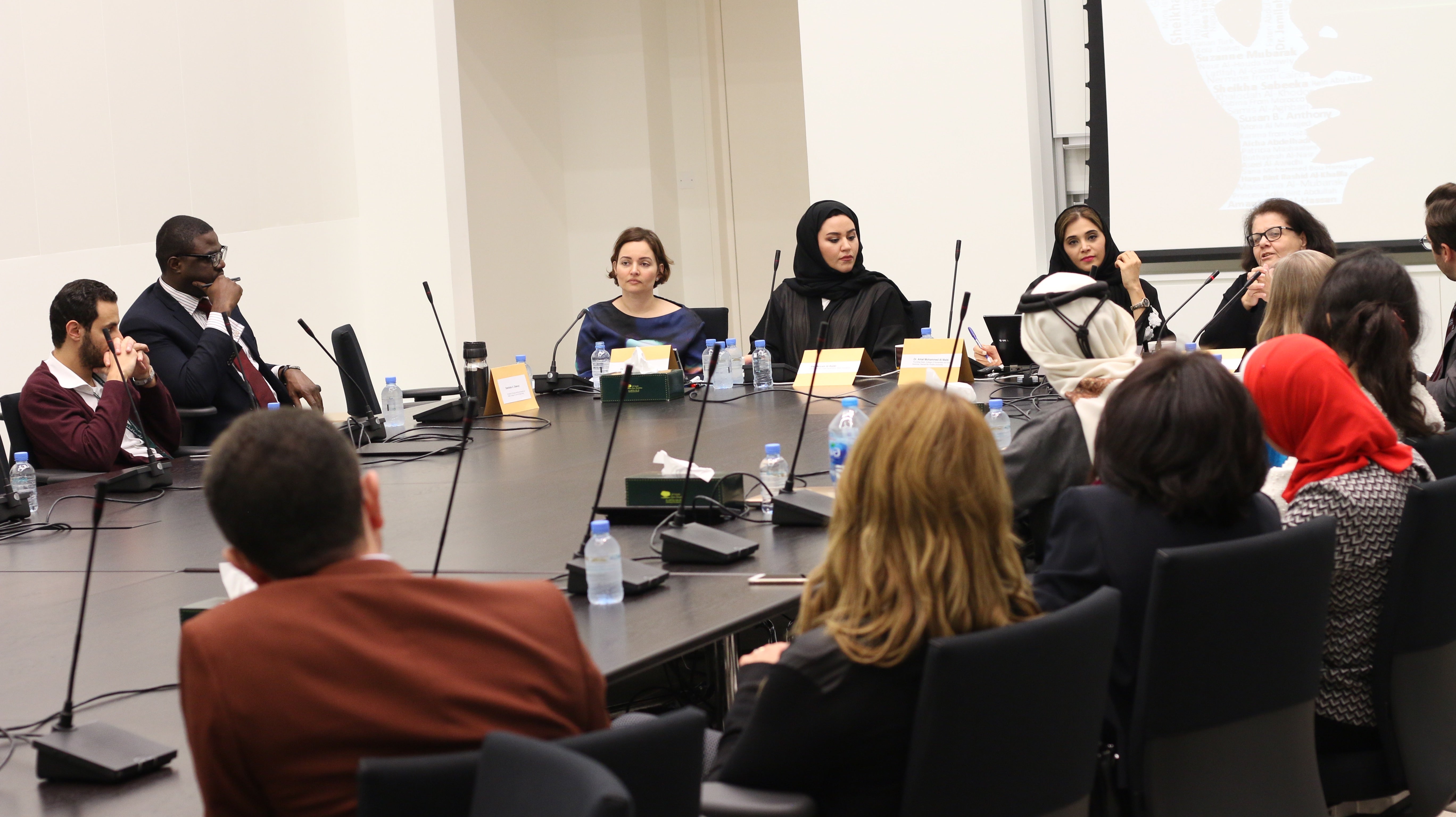
Hamad Bin Khalifa University (HBKU), a member of Qatar Foundation for Education, Science and Community Development, held a colloquium titled “Women in Leadership in Qatar” on February 15th, bringing together a number of distinguished speakers from across Qatar Foundation. The discussion explored ways to ensure the removal of barriers to women’s leadership and the various ways to develop and harness the leadership potential of women in Qatar.
The event was hosted by HBKU’s College of Law and Public Policy (CLPP). Similar events are organized throughout the year in order to encourage students enrolled on the college’s Juris Doctor (JD) graduate law degree to participate in debates across a range of issues in the areas of law and business. Although primarily held for the benefit of the students, the public are welcome to attend and participate in discussions.
Four prominent women speakers shared their respective views on the challenges and opportunities faced by women leaders in Qatar today: Dr. Amira Sonbol, Professor of History at Georgetown University in Qatar, Dr. Amal Mohammed Al-Malki, Founding Dean of College of Humanities and Social Sciences at HBKU, Ms. Maryam Al-Bader, Legal Counsel at Qatar Foundation and Dr. Ghida Al Juburi, Legal Advisor and Secretary of the Board at Qatar Foundation. The highlights of the discussion emphasized how the empowerment of women is crucial if the region is to reach its full economic potential, and is at the heart of sustainable development. The discussion covered such topics as women in leadership from a historical context, portrayals of women in the media, and whether legally binding quotas for women should be introduced at board level.
Amal Al-Malki, Founding Dean of HBKU’s College of Humanities and Social Sciences, who was the first Qatari woman to be appointed as a faculty member within Education City, said: “I am pleased to be part of this colloquium today which sheds light on a topic that is not regularly discussed in the news. Along with three other distinguished speakers, I would like to stress on women’s role in leadership in Qatar and the Gulf and propose ways that can further promote our main objectives, such as: increase the percentage of women in leadership positions by raising awareness and creating leadership programs and work towards eliminating gender segregation to achieve equality in the workforce.”
Event attendee, Asma Al Khulaifi, who is a JD student at HBKU’s CLPP, commented: “We’re very privileged to be having these forums at our university as it widens our perspectives and views. It is not only inspiring to be part of such discussions, but to also have the chance to meet these highly intellectual Arab women who are accomplished in their fields despite the many societal hurdles facing them.”
Rebecca Schillings, Assistant Professor at HBKU’s CLPP and one of the organizers of the “Women in Leadership in Qatar” colloquium, said: “What we hoped to accomplish with this colloquium was to provide students and participants from the community with diverse perspectives from both law practitioners and experts to help them understand how they can better use law to create a more gender-equal and diverse workforce. The colloquium also provided a platform for women to engage and network with other professional participants.”
The colloquium is one of many public lectures and events hosted by HBKU during the academic year, and is in line with the university’s aim in cultivating a culture where people can play an active role in creating positive change in their local and the wider global community.
To learn more about HBKU, visit hbku.edu.qa.





